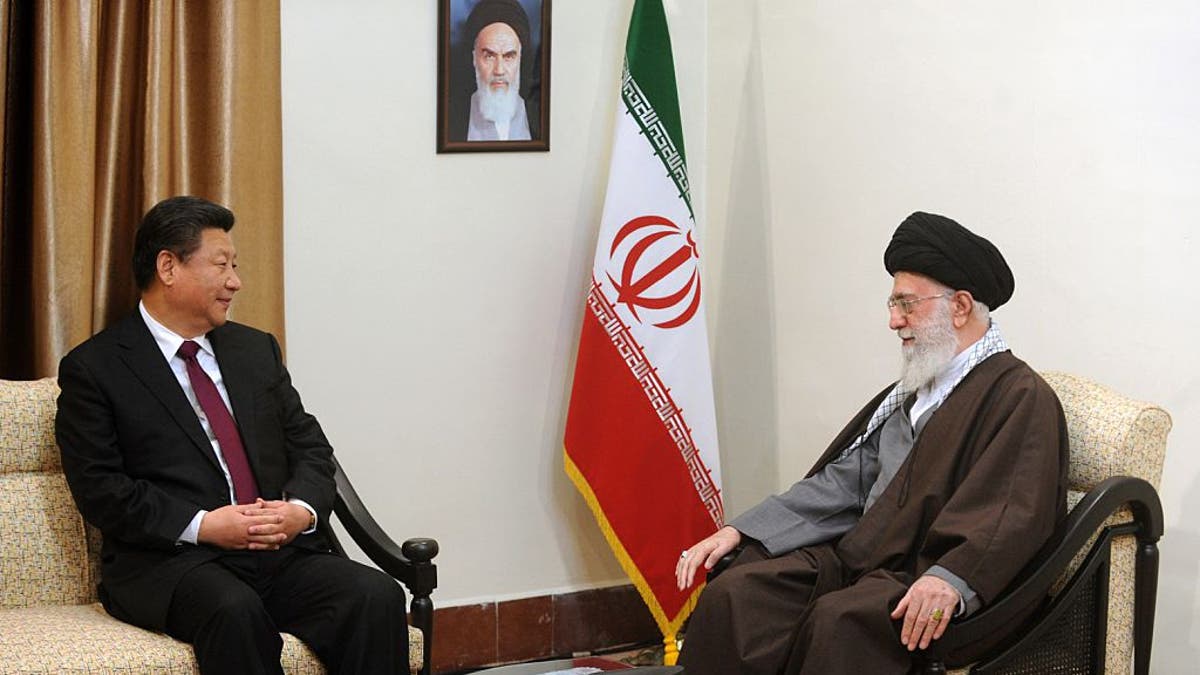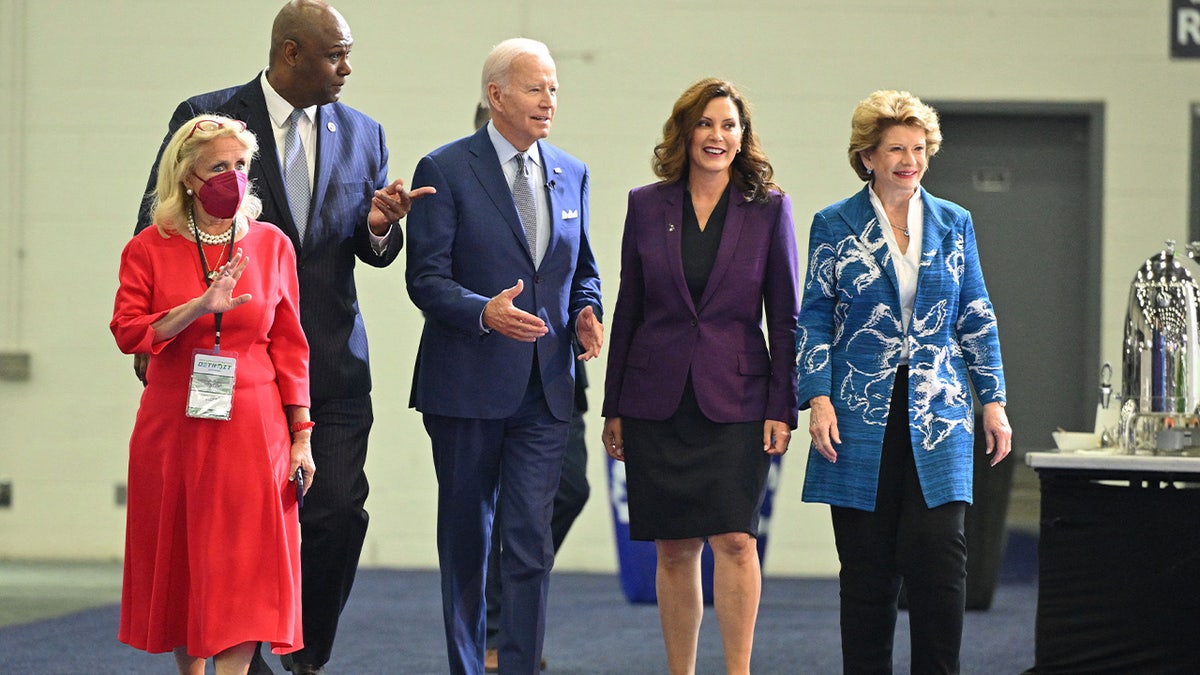Biden’s foreign policy challenges in 2023: China, Russia and war in the Middle East

The Biden administration experienced a tumultuous 2023 that saw the U.S. backing two foreign conflicts while China started to push for a new world order. But it wasn’t all a disaster, according to some analysts.
Joel Rubin, a former State Department official, summed up the past 12 months as 'a really hard year for the globe' with 'a lot of conflict, a lot of war.' He argued President Biden’s year has been far from abysmal, and he applauded the administration’s effort to try and take a more hands-on approach to foreign policy.
'We try to be proactive and to prevent conflict and crisis,' Rubin said. 'Most often than not, we are in a position like any country would be dealing with events as they are.'
Other experts were not so kind, calling Biden’s policy 'an utter failure' when it came to Russia and Ukraine or arguing that Biden’s approach to the Middle East has only 'emboldened' enemies.
'The Biden administration foreign policy has basically set the world on fire,' Rebekah Koffler, a senior military intelligence analyst, argued. 'We have two wars going on right now … that could escalate at any point.
'Why is this all happening? Because Team Biden has exhibited complete incompetence when it comes to foreign policy,' she claimed, insisting that the administration has 'pushed all of the adversaries together … and they all smell blood.'
Lisa Daftari, a Middle East expert and editor-in-chief of The Foreign Desk, labeled the Biden administration’s foreign policy 'abysmal and very damaging' with a reliance on deterrence that happened 'after the fact.'
'It’s no coincidence that our enemies … have been flexing their muscles and will continue to do so, playing out the clock for the last year of the Biden presidency,' Daftari said. She added that the administration is 'trying their best in terms of trying to limit or de-escalate' conflicts in the Middle East but ridiculed the White House for trying to 'micromanage Israel’s response to an existential threat.'
The highs and lows of the Biden administration's foreign policy have created a 'fascinating' year for foreign policy, according to Rubin, and here are some of the most notable examples.
WAR IN THE MIDDLE EAST
The world felt a cold shudder when the terrorist group Hamas launched a devastating attack on Israel Oct. 7. The indiscriminate violence killed 1,200 people, including some 30 Americans. The terrorists also kidnapped over 200 people, many of whom are still being kept hostage in Gaza.
Both Israel and the Western intelligence community had much to answer for as to how the most advanced and world-renowned intelligence groups managed to miss a sneak attack. Israel swiftly responded with air strikes on Hamas-linked targets before slow-rolling the start of a ground invasion that has lasted for months.
The Biden administration offered full-throated support for Israel, continuing to insist that the country had a right to defend itself from the existential threat of Hamas, a position echoed by allies including France and the United Kingdom, among others.
Such strong support did not prove universally popular, with widespread protests against the war and demands that the U.S. not only insist on a cease-fire but end funding for Israel’s military. Biden’s support of Israel quickly created division within his party, with the 'Squad' vocally pushing for a change in course and poll numbers among young and Muslim voters plummeting.
The Biden administration had worked with Qatar and Egypt to negotiate the release of Israeli, American and other foreign nationals held hostage by the terror group, successfully freeing dozens during a 'humanitarian pause' that lasted about one week before fighting resumed. The Israelis blamed Hamas for breaking the terms of the hostage agreement.
UKRAINE SUPPORT SAGS
Where the Israel-Hamas conflict has proven divisive, the Ukraine-Russia war had clarity. The U.S. strategy had widespread support, and everyone agreed Russian President Vladimir Putin needed to face consequences for his unwarranted attack.
Entering the second year of the war, the U.S. position started to falter as a much-hyped counteroffensive failed to produce the promised gains and Ukrainian President Volodymyr Zelenskyy had to switch tactics in an effort to demonstrate results.
Some in Congress started to express concern about the duration of the conflict as they watched debt continue to pile up. House Republicans, keen to rein in inflation and deal with the border crisis, have targeted any spending from the Biden administration, even support for Ukraine.
Zelenskyy paid a visit to the U.S. to plead his case to Congress, but Biden made clear his position in November as he committed another $200 million of stockpiled munitions and supplies for Ukraine while Congress continues to hammer out any further support for Kyiv.
Koffler continued to blame Biden for allowing Ukraine to happen in the first place, ignoring 'every possible intelligence indication and warning of what Putin was planning to do' and never working toward any counter strategy.
'That is precisely why Ukraine is being destroyed,' Koffler said. 'It’s because the United States was never ready to protect it.
'Putin spent 20 years developing a strategy on how to prevent the United States from entering the war … [it] involves either ratcheting up the ante to the nuclear level in Europe or bringing the war to the U.S. homeland by using space weapons, cyberattacks, EMP, electromagnetic pulse. … The more weaponry the Biden administration will provide, the more forcefully Putin is going to respond.'
IRAN APPEASEMENT
Daftari argued the results of Biden’s policy for the Middle East 'speak for themselves' and have only emboldened Iran, which has worked throughout the year to entangle itself in global affairs while working to undermine U.S. sanctions, all while the Biden administration maintains a policy of appeasement.
Iran has involved itself in both major wars in the world, first by selling arms, including the Shahed kamikaze drone to Russia, but more controversially through its ties and funding to Hamas.
After denying any part in planning the Oct. 7 attack or training Hamas to do it, Iran claimed in December the attack was vengeance for the murder of IRGC commander Qassem Soleimani, a claim Hamas denied.
The Biden administration did not try to renew its push for a nuclear deal with Iran, but the deal and the various frozen Iranian assets took focus again when it became clear the White House would unfreeze money for Iran after the Hamas attack as part of a prisoner exchange for five Americans.
The White House defended the policy but faced significant backlash to the deal and argued the money would never end up in the hands of Iranian officials or proxy groups since the money could only go to third-party, U.S.-approved vendors for humanitarian assistance.
Critics have urged Biden to also redesignate the Houthis, an Iran proxy group in Yemen, as terrorists after the group took credit for attacking U.S. military assets in the Middle East and taking ships hostage in the Red Sea. The Biden administration initially removed the group from the terrorist designation list on the grounds of helping move humanitarian aid to Yemen during its ongoing civil war.
'We're also watching Iran's proxies go after U.S. assets in Syria and Iraq, and of course, the Houthis in Yemen. And I think when you look at all of that, it ties right back into Washington's policy with regards to Iran and not wanting to curb Iran for some reason,' Daftari said.
CHINA’S PUSH FOR NEW WORLD ORDER
The year will be defined by the two major wars that took place, but it will also serve as a critical point in U.S.-China relations, with some gains and some losses in both directions.
Most notably, Biden and Chinese President Xi Jinping finally held a face-to-face meeting in the U.S. in a major step toward normalizing relations. Despite some half-hearted 'panda politics' to make things uncomfortable ahead of the talks, the leaders agreed to tackle the fentanyl trade and resume military-to-military dialogue and formal discussions on artificial intelligence technology.
Those gains were balanced by China’s efforts to strengthen the BRICS economic bloc, a counterweight to the U.S. and the G-7, and the high-profile incident of Chinese spy balloons entering American airspace at the start of the year.
'I think that one of the exciting changes that we've seen as well in 2023 is that, on the China file, what President Biden has done is maintain a strong American position with our allies, expanded our relationships in Asia and the Asia Pacific theater … and now we see it turning diplomatically where Chinese leaders are speaking to American leaders, trying to find ways to engage,' Rubin argued.
'It reached its pinnacle recently at the climate change talks,' Rubin added. 'The COP 28 talks where Secretary Kerry and his Chinese counterparts all agreed, along with our counterparts in the Arab world and across the planet, on a plan for climate action. So, that's one really interesting turning point as we head into the new year.'




